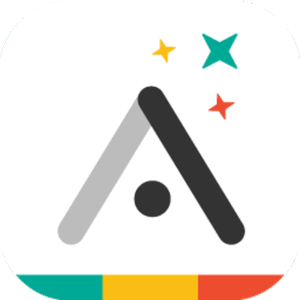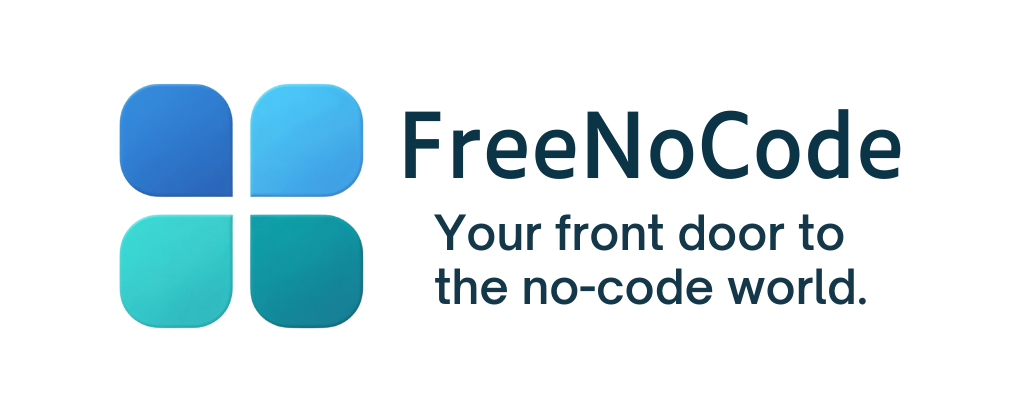8 Best Adalo App Ideas: What You Can Build Without Code (2025)

Skip To The App Ideas…
Adalo uses its built-in databases and workflow actions to manage all your app’s data and automate tasks. Plus, it plays nicely with other popular services like Zapier, MailChimp, QuickBooks, and Airtable, extending its capabilities even further.
Turning Ideas into Apps Has Never Been Easier
Thinking about creating an app but feeling overwhelmed by technical jargon and complex coding? You’re not alone. Many brilliant ideas never see the light of day because traditional app development seems too daunting. This report is here to demystify the process and show you how platforms like Adalo are changing the game, making app creation accessible to everyone.
Adalo is a fantastic platform that lets you design, build, and launch mobile apps for Android and iOS, plus web applications, often without writing a single line of code. Imagine dragging and dropping elements, connecting features, and bringing your vision to life visually. That’s the power of Adalo’s no-code and low-code approach, making rapid prototyping and deployment a reality for everyone, even if you’re not a tech wizard.
Unleash Your Ideas: What Kinds of Apps Can You Build with Adalo?
Adalo is incredibly versatile, meaning it can handle a wide array of application types. If you have an idea, chances are Adalo can help you build it. Here’s a look at the types of apps that thrive on this platform:
Why These Ideas Work with Adalo
All of these app ideas share a few common strengths that make Adalo especially well-suited:
- Mobile-First Design: Adalo is built with smartphones in mind, so apps look and feel natural on the devices people use most.
- Built-In Database: You don’t need a separate backend — Adalo’s relational database lets you handle user accounts, listings, and transactions in one place.
- Drag-and-Drop Simplicity: Complex features like booking, payments, or chat can be assembled visually, without needing custom code.
- Rapid Prototyping: You can go from idea to a working MVP in days, making it easier to validate concepts and get feedback quickly.
- Scalable for Niches: Whether it’s a community hub, a task manager, or a booking tool, Adalo handles specialized, niche apps efficiently.
That combination of speed, simplicity, and flexibility is why these examples aren’t just possible — they’re practical to build on Adalo.
Advanced / Future Possibilities with Adalo
Adalo already makes it simple to create powerful apps, but its potential goes even further when you look at advanced use cases and future directions. Here are a few possibilities that stretch beyond the basics:
- AI-Assisted Prototyping: Imagine pairing Adalo’s drag-and-drop builder with AI that suggests layouts, color schemes, or workflows based on your app’s “vibe.” Early hints of this approach are already emerging in the no-code space.
- Template Marketplaces: Beyond existing components, future marketplaces may offer complete app templates—like job boards, booking platforms, or marketplaces—ready to customize in minutes.
- Deeper Backend Integrations: While Adalo integrates with Zapier, Make, and Airtable today, expect stronger connections to cloud databases and external APIs, opening the door to enterprise-level workflows.
- Embedded Monetization Options: Future updates could expand Adalo’s payment and subscription tools, making it easier to turn niche apps into sustainable businesses without third-party workarounds.
These ideas aren’t guaranteed, but they highlight how Adalo’s no-code ecosystem is evolving. For makers, it means today’s simple MVP could grow into tomorrow’s fully-featured app without starting over from scratch.
Real-World Inspiration: Amazing Apps Built on Adalo
To give you a clearer picture of Adalo’s potential, let’s look at some unique and successful apps that have been built using this platform:
Inspirations:
|
App Name
|
Purpose
|
|---|---|
|
A verified Adalo template for listing or directory-style apps—great for local guides, resource hubs, or niche marketplaces. | |
|
Includes cart, checkout, and Stripe payments—shows how to build lightweight stores or subscription managers. | |
|
A free app offering over 200 crowdsourced resources for school counselors, helping them connect, interact, and organize counseling plans. It boasts over 750 users, showcasing its utility for specific professional communities. | |
|
Booking/scheduling system template for service providers, coaches, or venues; demonstrates Adalo’s scheduling flows. | |
|
A truly unique app that streamlines communication between pet owners, surgeons, and veterinarians for real-time updates on pet recovery after surgery. | |
|
Connects coaches/instructors with clients—classes, lesson scheduling, and content delivery. | |
|
Drop-in modules (e.g., Social Feed, Chat, Calendar, Purchase flows) you can combine into custom apps. | |
|
Gallery of real apps built with Adalo (e.g., Daily Tasker, Union)—useful for validating what’s achievable. |
*Chart: These examples highlight Adalo’s flexibility in bringing diverse, specialized, and often niche app ideas to life quickly and efficiently.*
The “Vibe-Coding” Revolution: Adalo’s Approach to Intuitive App Creation
You might have heard the term “vibe-coding” floating around. This exciting concept is all about creating applications based on your idea’s “vibe” or feeling, often with the help of AI to handle the technical details. Adalo, while not directly an AI-powered code generator, perfectly embodies the spirit of vibe-coding for everyday creators.
Its visual drag-and-drop interface lets you focus on how your app looks and feels, ensuring it aligns with the “vibe” you envision. You can arrange elements, choose colors, and define interactions that genuinely reflect your project’s personality, all without getting bogged down in traditional coding. This approach truly democratizes app creation, putting the power of intuitive design into your hands.
The Power of Simplicity: Why Choose No-Code/Low-Code with Adalo?
Adalo perfectly showcases the incredible benefits of no-code and low-code development:
Key Features and How You Can Monetize Your App
Adalo isn’t just about building; it’s about building a sustainable product. Here are some key features and how you can make your app profitable:
- Payment Integrations: Adalo supports various payment methods, including Stripe, ACH payments, marketplace payments, and subscription models. This opens up numerous monetization avenues.
- Monetization Strategies: You can offer a free version with paid upgrades for advanced features, charge per usage, or sell ad space to relevant businesses within your app.
- Integration Capabilities: Beyond its core features, Adalo can connect with thousands of other software pieces through custom actions and APIs, alongside popular tools like Zapier, MailChimp, QuickBooks, and Airtable
Understanding Adalo’s Sweet Spot: When It’s the Right Tool (and When Others Might Be Better)
While Adalo is incredibly powerful for a vast range of applications, it’s helpful to understand its strengths and where other tools might be a better fit.
Adalo excels at:
- Creating MVPs quickly and efficiently.
- Building mobile-first applications and simple web apps.
- Developing apps with structured data and clear user flows.
- Empowering non-technical individuals and small businesses to create custom solutions.
- Apps handling hundreds of users with typical app functionalities (listings, profiles, basic transactions).
You might explore other options if your project requires:
- Complex Data Manipulation: If your app involves highly intricate data analysis or goes beyond structured data.
- Advanced Backend Logic: For sophisticated calculations, heavy custom backend workflows, or complex conditional logic that isn’t handled by standard integrations.
- Sophisticated AI Features: Building advanced AI chatbots or machine learning models directly within the app without external tools can be challenging.
- Complex Games: Apps that require intricate physical interactions, heavy use of device gyroscopes, or complex in-app drag-and-drop game mechanics are generally beyond Adalo’s scope.
- Wide Device Integration: Connecting with a broad range of physical devices or opening specific document formats (like Open Office files) might require more specialized platforms.
For higher scalability with very large databases or extremely complex workflows, platforms like Bubble or FlutterFlow might offer more advanced features, but they often come with a steeper learning curve than Adalo’s user-friendly interface. Adalo remains a leading choice for getting functional, beautiful apps into the world fast.
Ready to Build?
Adalo truly stands out as a game-changer for anyone looking to build mobile or web applications without getting lost in complex code. Its no-code and low-code environment, combined with its intuitive design, empowers you to transform your ideas into tangible, working apps. Whether you’re aiming for a personal project, a niche business solution, or a community platform, Adalo provides the tools to build with confidence. Embrace the future of app creation and let your ideas thrive through vibe-coding with Adalo.
Check It Out
Curious how Adalo compares? Check out our Webflow project ideas and Base44 app ideas for more no-code inspiration.
FAQ
Want details on Adalo’s pricing, integrations, and tradeoffs? Explore our full Adalo platform guide for everything you need to choose the right no-code tool.
Helpful Links:
- Link to Adalo’s official showcase:
See more examples in the Adalo App Showcase. - Link to Adalo’s official documentation:
Need more technical guidance? Check the Adalo Docs.
